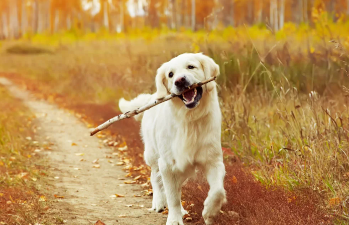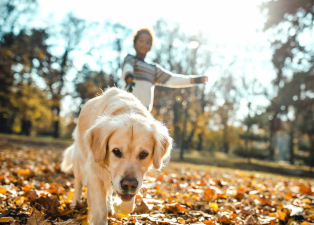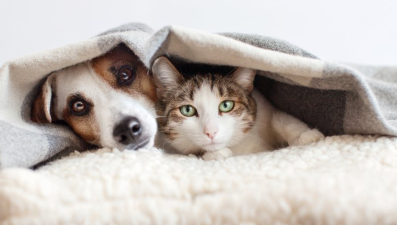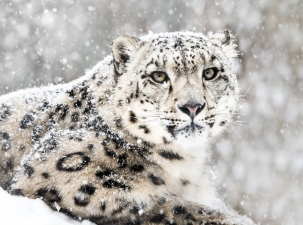Pet Safety Tips for Autumn & Winter Weather
Cold weather poses challenges to the safety and health of pets. How can pet owners prevent the risks of cold weather?
The cool autumn breeze has arrived, and are you feeling the chill? This golden autumn season is the perfect time to spend quality time with your dog. Autumn is a wonderful time to enjoy outdoor activities, but be mindful of potential risks. Playing amidst falling leaves is undoubtedly a delight for dogs.

- Wrap your pet in warm clothing
When you go for a walk, bundling up your dog helps regulate its body temperature when it's cold. This is especially important for short-haired breeds. Your pet's fur protects them from the elements, but not all pet coats are equally equipped to handle extreme winter weather. When purchasing a dog jacket, look for a high collar or turtleneck that covers the underbelly and the base of the tail. 2. Keep Paws Clean
When your pet comes indoors, wipe their paws thoroughly with a damp cloth to remove any ice, salt, caked-on dirt, or chemicals (such as ice melt) they may have brought in with them. If your pet licks their paws, salt and chemicals can cause problems such as irritation to the skin, paws, and gastrointestinal tract. If you're concerned about your dog's paws, a good option is to wrap their paws in booties when you take them outside for walks.
- Adjust your pet's diet
Winter weather may require a change in diet to maintain your pet's nutritional needs. If your pet spends most of their time outside, they consume more calories than is necessary to regulate their body temperature. In this case, you should feed your pet more, especially foods high in protein, to keep their fur healthy.
On the other hand, if your pet spends more time indoors during the winter, they will consume fewer calories, and you should reduce their calorie intake. Also, be mindful of their food supply. Inclement weather often causes water bowls or food to freeze.
- Keep your pet's environment safe and warm

Creating a safe and warm space for your pet during the winter is key to keeping them happy and healthy. Here are some tips:
- Keep outdoor pets inside the house or garage during inclement weather, especially at night.
- Make sure they have a warm place to sleep on the floor and away from drafts. A good example is a dog or cat bed with a warm blanket or pillow.
- Avoid using space heaters, as they can cause CO2 poisoning, heat damage, and even accidental fires.
- Before driving, check the space under your car's hood. Cats like to hide here because it's warm, but fan belts can seriously injure them. Knock on the hood to warn them.
- Don't leave your pet in a car; in cold weather, it can act like a refrigerator, maintaining a lower temperature than outside.
Watch out for antifreeze spills. This sweet-tasting liquid can be fatal to pets with just a lick. Opt for animal-friendly products that contain propylene glycol instead of traditional ethylene glycol. If you suspect your pet has ingested antifreeze, call your local veterinarian immediately.
- Watch for signs of frostbite or hypothermia. Catching the early warning signs of frostbite or hypothermia is key to limiting its effects. Short walks with your pet are generally safe, but if you spend a lot of time in the snow (such as running or cross-country skiing), make sure to check regularly.
Chilblains
This occurs when ice crystals form on surrounding tissues (ears, foreskin, vulva, tail tip, toes). Warning signs include redness, cold to the touch, swelling, and eventually, shedding of the surrounding tissue.


